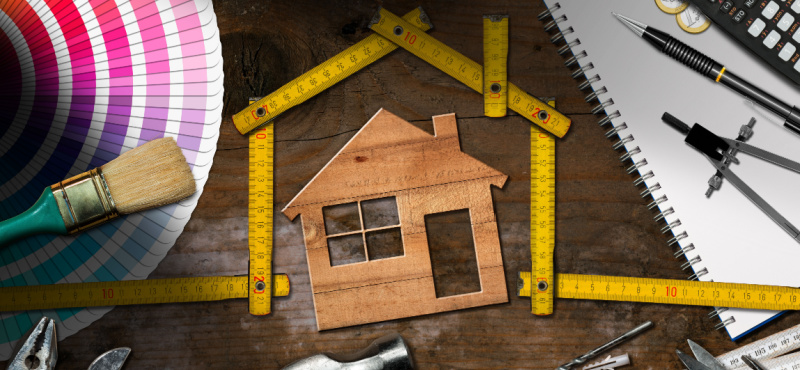When it comes to crafting your ideal living space, the choice between building a new home from the ground up and renovating an existing property can be a pivotal decision. As a leading project management company committed to bringing clients’ visions to life, we understand the importance of this choice and the myriad factors that come into play.
Whether you’re envisioning a fresh start with a brand-new home or seeking to revitalize an existing property, each option presents its unique set of advantages and considerations. Today, we aim to delve into the intricacies of this decision-making process, offering valuable insights and expert guidance to help you navigate the path towards your dream living space.
Budgeting and Planning
Let’s start with the most significant topic of all, the ‘budget’. When building a new home, you need to consider the costs of materials, labor, and permits. In South Florida, the cost of land can vary depending on the location, neighborhood desirability, and proximity to amenities. Waterfront or beachfront properties typically command higher prices, so the location you choose can significantly impact your budget.
Building a new home may incur higher initial costs, including land purchase, construction materials, labor, and permits. Renovations, depending on the scope, may also involve significant expenses, such as structural changes, updating systems, and aesthetic upgrades. When deciding between building a new home and renovating an existing property, learning everything about the financial aspects and how they align with your budget can be helpful.
Condition of the Property
Before considering a renovation, it’s essential to conduct a thorough assessment of the existing property. The architect will determine how much the house must be brought up to code. Generally, if you are renovating up to 25% of the value of your home structure not including land (this value is found on you County Appraisers website), a small amount of code updates are called for. If you are renovating between 25% to 50%, a few more will be needed. More than 50% will require the entire house to be brought up to code as best as possible. This will all be noted on the plans from the architect and if the city requires more updating, they will point it out to us during the City Plan Review process. We do always recommend upgrading your exterior windows and doors to be Hurricane Impact products as the first step.
This fact is what is forcing allot of homeowners to demolish and build new homes. Our new building, zoning and FEMA regulations have changed so much and are so strict today that it very often it does not make sense to renovate older, smaller homes.
Obviously, this can vary from project to project. It also depends on what you are looking for in the end result. Some points to think about if you are considering renovating your home are: What age is your home? What is the elevation of the finish floor? Are you ready for sea level rise that is already affecting our lower lying communities? If you spend too much money on a large renovation, are you going to price your house out of the market?
As a developer, we are finding that it is easier and better to demolish smaller, older homes and build new, higher elevation, stronger and more energy efficient homes. Your real-estate value will be much higher than if you simply renovated an old home and did major additions. After doing this analysis with clients, 90% of the time we are ending up demolishing the home and building new. Your insurance rates will also drop dramatically on a new home built to all today’s current building, zoning and FEMA regulations.
Build More on Customizable Factors
Consider your preferences for customization and personalization. Building a new home allows for greater design flexibility and the opportunity to create a living space tailored to your specific requirements and style preferences. On the other hand, renovating an existing property enables you to update and modify certain aspects while preserving the property’s original charm and character.
Managing Timelines
Take into account your timeline and the urgency of your housing needs. Building a new home typically involves a longer timeline, including the time required for planning, design, permits, construction, and finishing. Renovations, depending on their scale, can also be time-consuming, particularly if they involve structural modifications and intricate design changes.
Here at Paterson Project Management, we provide our clients with a very detailed online schedule to follow using, Buildertrend, a project management software. A very transparent process that allows clients to access their project’s progress right at their fingertips. Buildertrend can be viewed on any desktop or mobile device, making it very accessible for our clients, especially while working and/or traveling. Clients can interact with our schedule and staff online and know exactly what’s going on at all times. From Daily Logs with photos and videos, to Change Orders requested by clients, to a detailed color-coded Schedule In-List, Calendar, or Gant form where clients can see how each scheduled item interacts with another.
Consider Regulatory Factors
Whether building a new home or renovating an old property, it is imperative to familiarize yourself with the local building regulations, zoning restrictions, and permit requirements. Ensure that you understand the legal aspects and any limitations associated with your project before making the final decision. Consulting with property management experts can also provide insights that can help you determine the most suitable option.
Final Take
If you are looking for the best-in-business team to assist you in getting your new construction or property development project off the ground, look no further than Paterson Project Management. After years spent helping numerous clients build their dream homes, our experts are well-versed in managing and overseeing home construction on every scale. Call us today to learn more about our services!

